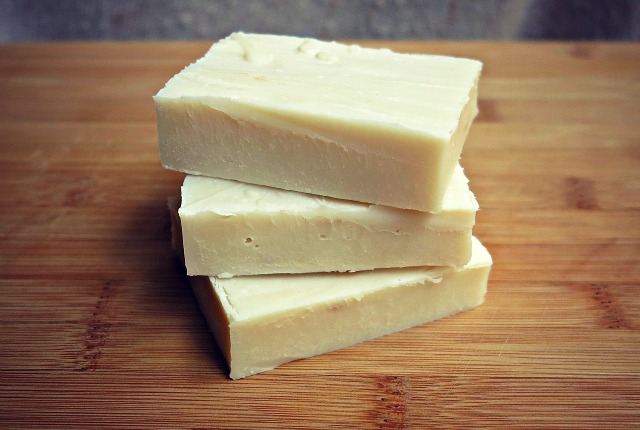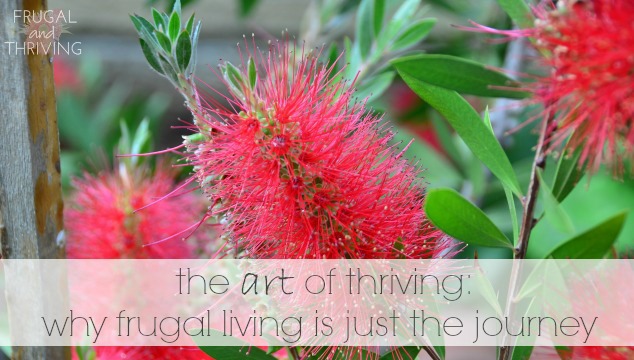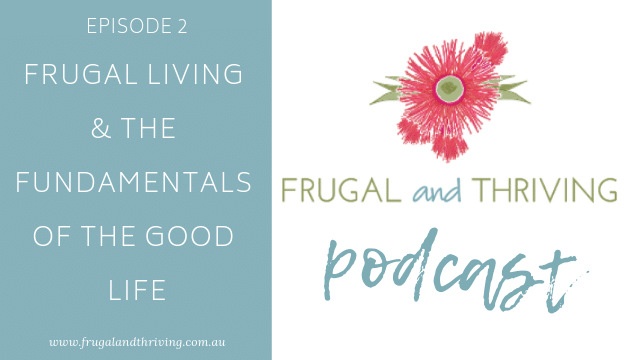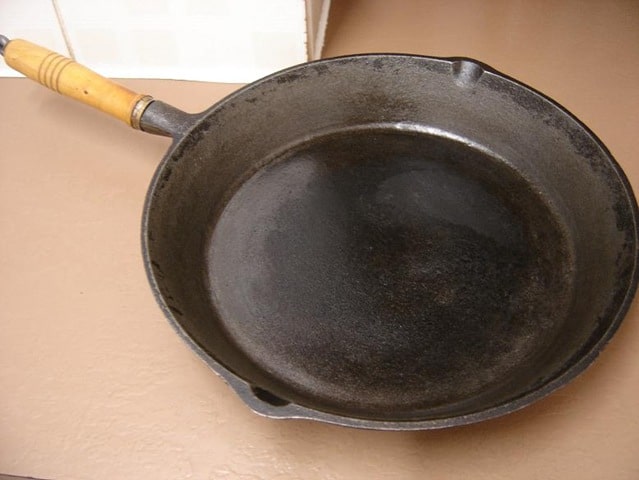Why Frugal and Thriving
This website may earn commissions from purchases made through links in this post.

How do you define a thriving life?
Is it one where you have a big house and fancy car and lots of overseas holidays? More capital gains and fancy champagne?
That’s certainly how thriving is often depicted in a consumer-based life.
But what brings us true joy and happiness?
Is it the fancy car or is it sharing a laugh with a friend.
In one sense, thriving = freedom. The freedom to have
And while more money can certainly help increase your personal freedom, once you reach a level of income above the poverty line, living frugally will give you freedom by allowing you to be free of the work-to-shop treadmill.
Here are a few ways frugality can increase your freedom and help you to thrive.
Freedom from debt
Imagine a life without being a slave to debt. Our entire monetary system is set up so that the population as a whole can never, ever be free of debt. But as individuals we can break free of the cycle of repayments and interest. Being frugal is a way to avoid excessive debt and pay off the debt that we have as quickly as possible. This not only stops the leak in our wallets, it gives us back our most precious commodity of all: our time.
Freedom from keeping up with the Jones’
Adopting the frugal life means that all of a sudden our perspective changes. We buy things according to our values, not someone else’s. We no longer need stuff just because everyone else has that stuff. We no longer worry what others think of how we live or what we have. We stop wasting our time thinking about and wishing for things that we don’t have and don’t need. We are not defined by what we own.
A shift in values
Being frugal automatically reduced our environmental impact. People are becoming increasingly aware and concerned about this. Our spending patterns reflect our changing values. We value organic, local foods, fair trade, natural, non-toxic. Because we realise that we thrive in an environment that supports and sustains us.
We don’t spend mindlessly. We consider (where we can) our purchasing power and the impact our choices have. We consider the things we value most and save our money for those things, rather than let it leak out of our wallets on things that are forgotten in moments.
We also value our time. Less time working overtime, more quality time with our families and friends. We understand that time is the one thing we can’t get back once it’s spent.
Getting back time also comes with learning how to build a passive income. This website not only looks at how to save money, but how to build investment knowledge – the other side of the coin to being smart with your money.
A life beyond consumerism
We have so much “stuff”. More stuff than we will ever need. And we’re constantly buying more stuff. Then we pay for storage to store all this stuff. Statistically, 99% of the stuff we buy goes into the cupboard or into the bin after only six months of use. Reducing our spending reduces the amount of unnecessary stuff and clutter we have, reducing the amount of stuff that ends up in landfill.
We live in an age where everything is rationalised according to its monetary value. If you can’t buy and sell it, if you can’t make money with it, it has no value. Being frugal means learning to reinterpret the value of things beyond their dollar value. Things or experiences might have sentimental value, or functional value, or entertainment value, or aesthetic value. All of these things can’t be measured by how much money we spend.
It’s time to reinvent our economic model. Unlike the law of gravity, the economic model is arbitrary, not a given. “Buy more stuff” to keep the economy going is a mantra that we don’t have to buy into. As a whole, we can change the rules. We can change the way the economy works.
Health and Happiness
Frugal living can improve our health. Walking to the store, playing in the park, driving less, all improve our fitness incidentally. Cooking from scratch, eating whole foods and growing our own food, also improves our health.
Being frugal can reduce stress. Budgeting, building an emergency fund, saving for the future, investing wisely, all take the worry out of “what might be”. Also, working less hours and in a less stressful job can reduce stress.
You would think that the more money a person has, the more happy they would be. But studies have shown that beyond enough money to cover the cost of living, more money doesn’t increase happiness. One of the things that does increase happiness is having a purpose in life, having goals and working towards them. Working towards goals is more important for happiness than having the money to meet them all today.
Creativity, innovation and problem solving
Being frugal can be fun. Finding innovative solutions to everyday problems without spending money; recycling, refashioning and reusing the things that we have, being creative are all fun.
Making our own clothes, sewing, gardening, woodworking, crafting, fixing things, building things are all frugal ways to pass the time enjoyably.
Doing things that you love
When our wants are reduced or prioritised, we don’t need to work overtime to make extra money. We understand that we don’t need to have everything, just the things that are important to us. And of course, less time at work means more time doing the things that we love.
You might love to travel. So you work to travel and you don’t waste your money on things that are meaningless. In this way, being frugal is not about saving every penny, it’s about prioritising our spending.
Enjoying the simple things in life
Small things become special again when they’re not everyday occurrences. Before I stopped working, we used to eat out every week. It was just something that we did. Now we do it once every month or three and I get really excited about it. It has become something special again.
Think about the most prized memories of your childhood. How many involved spending money or material possessions? Backyard cricket, imaginary games with friends, reading, going to the beach are all memories that I prize – none involve spending money.
Think of the things that you have that have the most sentimental value. How many are expensive items?
Finding happiness on a sunny day, in a moment with a stranger, in a child’s laugh is a dying art.
Reconnecting
As a culture, we are increasingly disconnected. Disconnected from the food that we eat, the people around us, the manufacturing of the the things that we buy and use, even disconnected from ourselves.
Time, tangibility and touch are an important way to reconnect with the world around us. The act of creation, crafting something with our own hands, whether it be cooking, gardening, crafting reconnect us with nature and it’s materials. Being physical connects us with our body and our environment. Turning off the air con or the heater and feeling hot or cold, feeling sweat, reconnects us to the world around us and what it is to be alive.
Spending time in the company of our friends and family also reconnects us. Sometimes just spending time alone is important to reconnect to the person the we are.
But in our hectic world, where we constantly strive to “get ahead” (of what?) how often do we do this?
Giving
In my experience those who have less to give, often give the most. Not always. There are many examples of very generous wealthy people. But I’ve seen myself that more often than not, it’s those who have less money who are more willing to give.
Studies have shown that since the world financial crisis, people have been more willing to give to charity. Our attitude has changed. People suddenly care more. I find this heartening.
In our culture today, we think that those who are thriving are those with the most material possessions, the most money, the biggest house, the most expensive car.
Thriving is so much more than that. In fact, it is often the complete opposite. Understanding that wealth is something beyond the economic and the material frees us from the bonds and fears of money.
I’m a realist. I realise that we need to work and make money to live. But reinterpreting our attitude to money and thinking outside the square gets us out of the rat race. It shifts our values. It helps us to thrive.







Nice writing style. I look forward to reading more in the future.